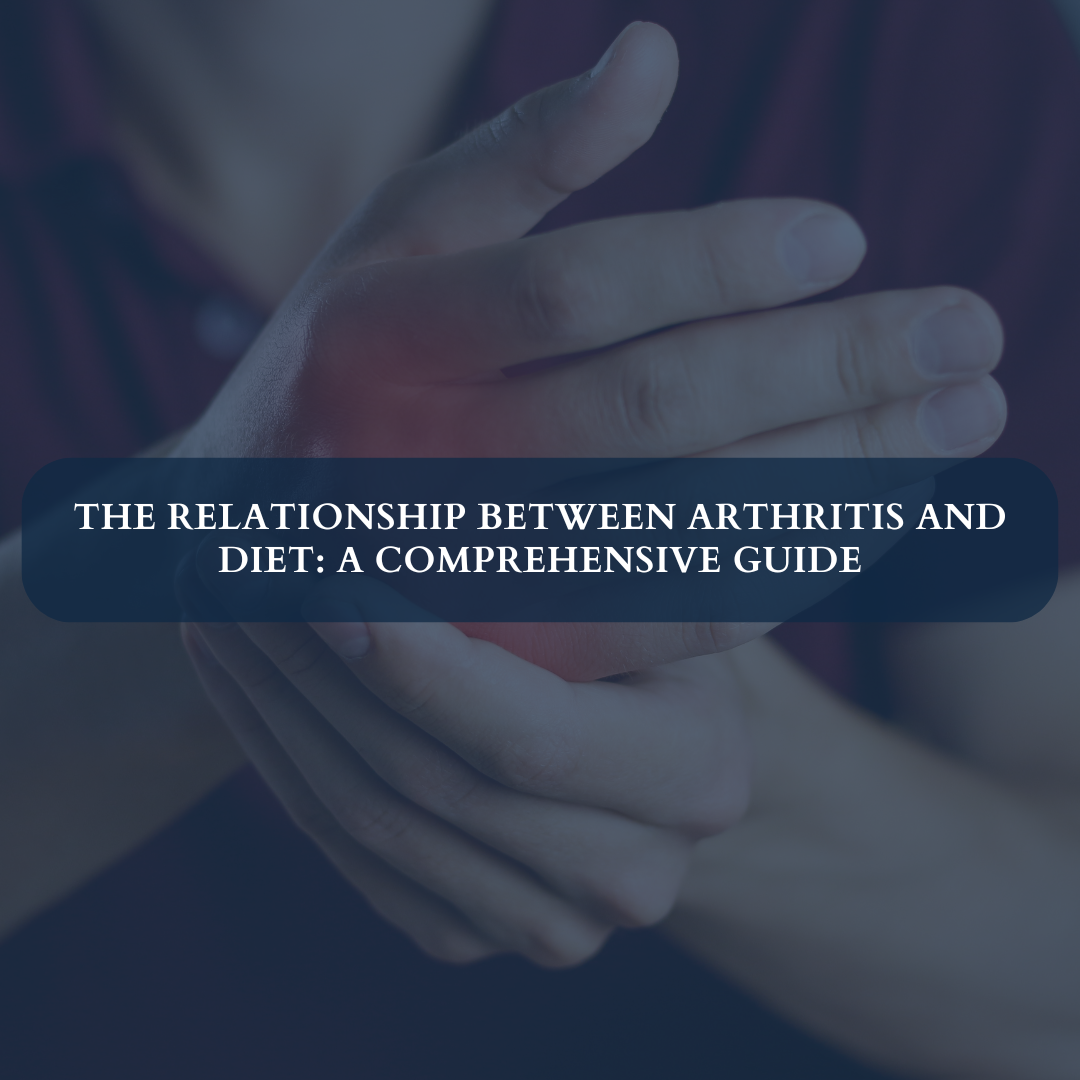Arthritis, a common condition affecting millions worldwide, can significantly impact one’s quality of life. While medical treatments exist, many individuals seek alternative methods to alleviate symptoms and improve their overall well-being. One such avenue gaining attention is the role of diet in managing arthritis. In this comprehensive guide, we’ll delve into the intricate relationship between arthritis and diet, exploring dietary strategies, foods to include and avoid, and evidence-based recommendations to help you make informed choices for optimal joint health.
Understanding Arthritis
Before delving into dietary interventions, it’s essential to grasp the basics of arthritis. Arthritis refers to inflammation of the joints, leading to pain, stiffness, and decreased mobility. The two most prevalent types are osteoarthritis and rheumatoid arthritis. Osteoarthritis is characterized by the breakdown of cartilage in the joints, often associated with aging or injury. On the other hand, rheumatoid arthritis is an autoimmune disorder where the body’s immune system mistakenly attacks its tissues, primarily affecting the lining of the joints.
The Impact of Diet on Arthritis
While diet alone may not cure arthritis, it can play a significant role in managing symptoms and reducing inflammation. Research suggests that certain dietary patterns and nutrients may influence the progression of arthritis and alleviate discomfort.
Anti-inflammatory Foods
Incorporating anti-inflammatory foods into your diet can help combat inflammation associated with arthritis. These include:
- Fatty Fish: Rich in omega-3 fatty acids, fish like salmon, mackerel, and sardines possess potent anti-inflammatory properties.
- Berries: Blueberries, strawberries, and raspberries are packed with antioxidants that help reduce inflammation and oxidative stress.
- Leafy Greens: Spinach, kale, and Swiss chard are abundant in vitamins, minerals, and antioxidants, offering anti-inflammatory benefits.
- Nuts and Seeds: Almonds, walnuts, flaxseeds, and chia seeds are excellent sources of healthy fats and antioxidants, contributing to joint health.
Foods to Limit or Avoid
Conversely, certain foods may exacerbate inflammation and worsen arthritis symptoms. It’s advisable to limit or avoid the following:
- Processed Foods: Processed snacks, sugary beverages, and fast food items often contain trans fats and high levels of refined sugars, which can increase inflammation.
- Red Meat: While delicious, red meat contains high levels of saturated fats, which may trigger inflammation and contribute to joint pain.
- Refined Carbohydrates: Foods like white bread, pastries, and sugary treats cause spikes in blood sugar levels, promoting inflammation and exacerbating arthritis symptoms.
- Alcohol: Excessive alcohol consumption can disrupt the balance of inflammatory markers in the body, leading to increased inflammation and pain.
Dietary Strategies for Arthritis Management
In addition to specific foods, adopting certain dietary strategies can support joint health and alleviate arthritis symptoms.
Mediterranean Diet
The Mediterranean diet emphasizes whole grains, fruits, vegetables, legumes, nuts, and olive oil while limiting red meat and processed foods. Studies have shown that adhering to a Mediterranean diet may reduce inflammation and improve joint function in individuals with arthritis.
Plant-Based Diet
A plant-based diet, rich in fruits, vegetables, nuts, seeds, and legumes, provides ample antioxidants and phytonutrients that combat inflammation and promote overall health. Some studies suggest that plant-based diets may help reduce arthritis symptoms and improve quality of life.
Weight Management
Maintaining a healthy weight is crucial for managing arthritis, as excess weight puts added stress on the joints, exacerbating pain and inflammation. Adopting a balanced diet and engaging in regular physical activity can aid in weight management and alleviate arthritis symptoms.
Conclusion
In conclusion, while diet alone may not cure arthritis, it can significantly impact the management of symptoms and overall joint health. By incorporating anti-inflammatory foods, limiting inflammatory triggers, and adopting healthy dietary patterns like the Mediterranean or plant-based diet, individuals can take proactive steps towards alleviating arthritis discomfort and improving their quality of life. Remember to consult with a healthcare professional or registered dietitian to personalize dietary recommendations based on your specific needs and medical history. With the right dietary choices and lifestyle modifications, managing arthritis can become more manageable, allowing you to live life to the fullest.
Ready to explore your options for chiropractic and physiotherapy? Contact SwastyaPhysio today to schedule a consultation and discover the best path to your wellness journey. We’re here to support your health every step of the way.
Banaswadi | HBR layout | Kalyan Nagar | Kammanahalli | Horamavu | Hennur
